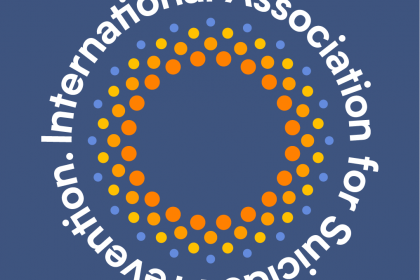In the frame of International Survivors of Suicide Loss Day 2020, the Scientific Director of the Greek Center for Suicide Prevention sends his message signaling the prepublication of the second edition of the Guide for Survivors of Suicide, which will be completed through a participatory process of all those who wish to share their own experience of losing a loved one.
Today, about 10 years after the startup of the Klimaka’s Center for the Suicide Prevention, I wanted to share with you a small part of the plenty but also emotionally charged experiences that, not only myself, had but all the colleagues of the D.C. for the Suicide Prevention. I will refer to International Survivors of Suicide Loss Day shortly, so that we can all understand, even those who are not directly related, what survivors are. Suicide survivors are family members and friends who experience the loss of a loved one due to suicide. The loss and pain in the case of suicide, seems to have some unique features that distinguish it from the pain of losing a person due to other causes.
The American Psychiatric Association considers the trauma resulting from the loss of a person to suicide to be a catastrophic event, which many rightly compare to the experience of a Nazi concentration camp in Germany. In Greece, there are about 600 suicides every year, while it is estimated that there are about 5,000 survivors, raising the number of survivors in the years of our financial crisis to about 25,000. Worldwide, 800.000 suicides correspond to 7,000,000 survivors.
International Survivors of Suicide Loss Day refers to this population. A large and invisible group most of the time, where stigma, pain, shame, mobilize individualized mechanisms at different times, having the power to destroy entire families, in many ways, with more deaths from this cause, and certainly nothing can not be as it was before… The effects on survivors, families and society have not yet been assessed. Survivors are the largest community of suicide-related mental health victims (Shneidman, 1972).
The goal of International Survivors of Suicide Loss Day is to allow those who have lost a loved one from suicide to participate in meetings, associations and groups, to communicate and share experiences, in order to increase raising awareness and understanding of the importance of suicide mourning, creating support services, such as creating voluntary networks that will operate across the country, strengthening their resilience, knowing that we live in a society where even today the issue of “suicide” considered taboo.
My colleagues and collaborators all these years, at different times shared, experienced, dealt with human pain in all its dimensions. Extreme and difficult human experiences, such as access to the pain of these individuals, who tend to avoid any contact in the early stages of grief.
The visits in the Center for the Suicide Prevention included ages between 15 and 85, men and women from all over Greece. We understood from their expressions, or their expressionless faces, their pain, or their anger, their despair, or even their guilt. Most of them, tired and sleepless with stern faces, often angrily said to us “But what can you do for me?”…
The personality of the person, the beliefs, the values, the previous experiences, the kind of kinship with the person who completed suicide, the social network, are factors that influenced the time process and the type of mourning. The fact that we were facing an unforeseen loss, which leaves many wondering about a “why” and what could have been done to prevent suicide, was constantly repeated, wrapping these individuals in a vicious cycle of martyrdom. It is said that only a quarter of people who suffer from traumatic experiences seek help and many do not come because they do not trust immediate interventions.
We learned about “cursed wells” all over Greece where every 20–30 years a member of the family complete suicide, we learned about suicides that passed as accidents. We learned about elderly deaths that were suicides, about relatives who, although aware of the danger, did not care for the treatment of their sick person, for the depressed and schizophrenics who have officially had a recent shotgun license, for patients who underwent only psychotherapy instead of drugs, but also psychoanalytic interpretations of hangings and falls in suicidal patients…
I will try to close this text with a “positive experience”. Many times, loss and traumatic experiences can really pave the way for changes, that improve the quality of life of survivors. These International Days in our homeland pass as simply as so many others and… are so easily forgotten. Today and every day there will be 2 suicides in our country, 15-25 attempts and up to 135 people will be added to the thousands of survivors.
Kiriakos Katsadoros,
President of KLIMAKA,
Psychiatrist, Scientific Director of the Greek Center for Suicide Prevention





